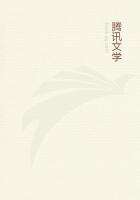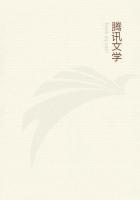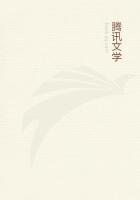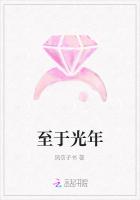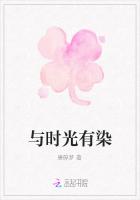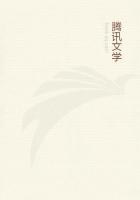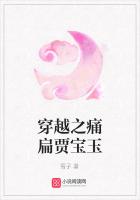See how in our use of language the case is clearly shown. The adjectives and derivatives based on woman's distinctions are alien and derogatory when applied to human affairs; "effeminate"--too female, connotes contempt, but has no masculine analogue; whereas "emasculate"--not enough male, is a term of reproach, and has no feminine analogue. "Virile"--manly, we oppose to "puerile"--childish, and the very word "virtue" is derived from "vir"--a man.
Even in the naming of other animals we have taken the male as the race type, and put on a special termination to indicate "his female," as in lion, lioness; leopard, leopardess; while all our human scheme of things rests on the same tacit assumption; man being held the human type; woman a sort of accompaniment aud subordinate assistant, merely essential to the ****** of people.
She has held always the place of a preposition in relation to man. She has been considered above him or below him, before him, behind him, beside him, a wholly relative existence--"Sydney's sister," "Pembroke's mother"--but never by any chance Sydney or Pembroke herself.
Acting on this assumption, all human standards have been based on male characteristics, and when we wish to praise the work of a woman, we say she has "a masculine mind."
It is no easy matter to deny or reverse a universal assumption. The human mind has had a good many jolts since it began to think, but after each upheaval it settles down as peacefully as the vine-growers on Vesuvius, accepting the last lava crust as permanent ground.
What we see immediately around us, what we are born into and grow up with, be it mental furniture or physical, we assume to be the order of nature.
If a given idea has been held in the human mind for many generations, as almost all our common ideas have, it takes sincere and continued effort to remove it; and if it is one of the oldest we have in stock, one of the big, common, unquestioned world ideas, vast is the labor of those who seek to change it.
Nevertheless, if the matter is one of importance, if the previous idea was a palpable error, of large and evil effect, and if the new one is true and widely important, the effort is worth ******.
The task here undertaken is of this sort. It seeks to show that what we have all this time called "human nature" and deprecated, was in great part only male nature, and good enough in its place; that what we have called "masculine" and admired as such, was in large part human, and should be applied to both ***es: that what we have called "feminine" and condemned, was also largely human and applicable to both. Our androcentric culture is so shown to have been, and still to be, a masculine culture in excess, and therefore undesirable.
In the preliminary work of approaching these facts it will be well to explain how it can be that so wide and serious an error should have been made by practically all men. The reason is simply that they were men.
They were males, avid saw women as females--and not otherwise.
So absolute is this conviction that the man who reads will say, "Of course! How else are we to look at women except as females? They are females, aren't they?" Yes, they are, as men are males unquestionably; but there is possible the frame of mind of the old marquise who was asked by an English friend how she could bear to have the footman serve her breakfast in bed--to have a man in her bed-chamber--and replied sincerely, "Call you that thing there a man?"
The world is full of men, but their principal occupation is human work of some sort; and women see in them the human distinction preponderantly. Occasionally some unhappy lady marries her coachman--long contemplation of broad shoulders having an effect, apparently; but in general women see the human creature most; the male creature only when they love.
To the man, the whole world was his world; his because he was male; and the whole world of woman was the home; because she was female. She had her prescribed sphere, strictly limited to her feminine occupations and interests; he had all the rest of life; and not only so, but, having it, insisted on calling it male.
This accounts for the general attitude of men toward the now rapid humanization of women. From her first faint struggles toward ******* and justice, to her present valiant efforts toward full economic and political equality, each step has been termed "unfeminine" and resented as an intrusion upon man's place and power. Here shows the need of our new classification, of the three distinct fields of life--masculine, feminine and human.
As a matter of fact, there is a "woman's sphere," sharply defined and quite different from his; there is also a "man's sphere," as sharply defined and even more limited; but there remains a common sphere--that of humanity, which belongs to both alike.
In the earlier part of what is known as "the woman's movement," it was sharply opposed on the ground that women would become "unsexed." Let us note in passing that they have become unsexed in one particular, most glaringly so, and that no one has noticed or objected to it.
As part of our androcentric culture we may point to the peculiar reversal of *** characteristics which make the human female carry the burden of ornament. She alone, of all human creatures, has adopted the essentially masculine attribute of special ***-decoration; she does not fight for her mate as yet, but she blooms forth as the peacock and bird of paradise, in poignant reversal of nature's laws, even wearing masculine feathers to further her feminine ends.
Woman's natural work as a female is that of the mother; man's natural work as a male is that of the father; their mutual relation to this end being a source of joy and well-being when rightly held: but human work covers all our life outside of these specialties. Every handicraft, every profession, every science, every art, all normal amusements and recreations, all government, education, religion; the whole living world of human achievement: all this is human.
That one *** should have monopolized all human activities, called them "man's work," and managed them as such, is what is meant by the phrase "Androcentric Culture."

